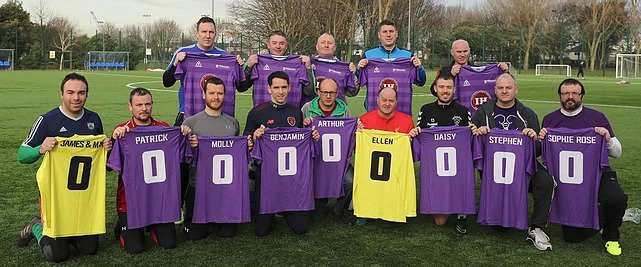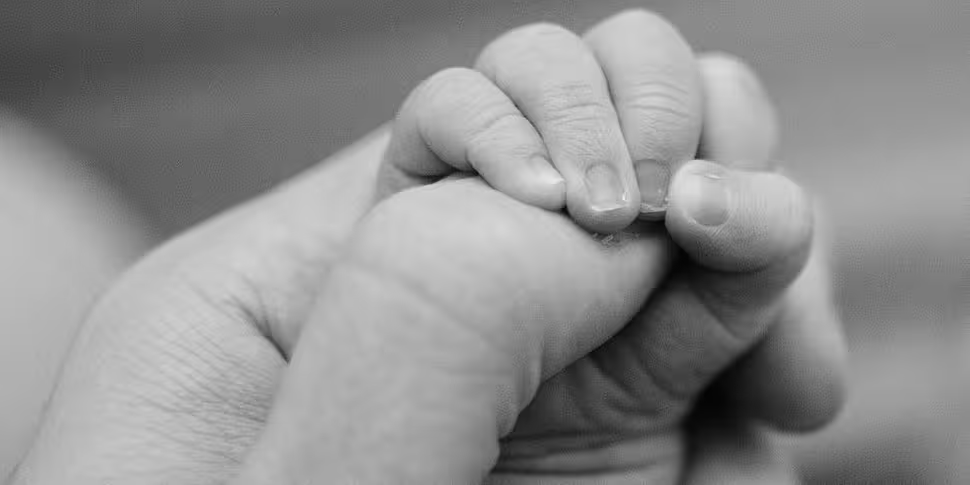Many fathers feel left out of the grieving process after a miscarriage, Lunchtime Live callers have warned.
After the show focused on fathers’ mental health yesterday afternoon, the show heard from several fathers who said they had struggled to access supports following miscarriage or stillbirth.
Today, Martin, a father whose partner suffered a miscarriage nine years ago, spoke to Lunchtime Live about the difficulties men face when tragedy strikes.
“We lost Stephen nine years ago,” he said. “He was 20 weeks and two days old… It's not a good experience.”
Martin said he was torn between his children in the waiting room and trying to be there for his wife.
“It's terrible situation to be in, obviously, but you try and do your best, and the nurse comes in and says, ‘We need to find different equipment and try that’, and then gets the doctor in," he said.
“Finally they say, ‘There's no heartbeat. We're sorry’.
“We were actually scheduled the next day for a scan, and we went and had that, and that's where I found out it was a boy.
“I strangely felt proud at the time, because we have two girls already, and this was my son.”
"Finally recognised"
Martin said that, because his son was “so small and so young”, the couple didn’t receive a still birth cert for him.
At the time, a foetus had to be 24 weeks or 500 grams to be deemed a still birth.
A month ago, the Government changed these guidelines to 23 weeks or 400 grams.
“So, we've been fighting for the past nine years to get Steven recognised, because the State didn't recognise that my son existed,” he said.
“So, last Friday we got his still birth cert, he was finally recognised.”
"Bittersweet"
Martin said the moment was “bittersweet”.
“Obviously, it's great that he's finally recognised now, but the fact that it's taken so long… still they've only just moved the goalpost,” he said.
“My thoughts then go to what happens to the person who loses the baby at 22 weeks, six days and 399 grams - they're in the same situation we were.
“You're just outside the criteria, but the government doesn't recognise your baby.”
"Dad mode"
After the stillbirth, Martin said he went “into Dad mode” to protect “everybody else”.
“It wasn't until, I'll say, about two years later, that it actually hit me,” he said. “I had kind of blocked it all off.
“I keep saying, if somebody had given me a card and said, when you're ready to talk, call this number here and somebody will be ready to talk to you [it would have helped], because it took me that long to for it to actually hit me," he said.
“Anybody who's has had a recent miscarriage, I'll tell them - do what you have to do for the kids and the wife, but don't forget about yourself.
“That's what dads will do - they will push their own emotions aside to and put everybody else first, but it's still there, and it has to be dealt with at some point.”
 Féileacáin football group. Image: Féileacáin
Féileacáin football group. Image: FéileacáinMartin said the charity Féileacáin made a huge difference for his family.
He said the option was always there for him to talk to a charity but “until you go and look for the help, it’s not there”.
“There's nobody to say, well, here, this is here if and when you need it,” he said.
"Exclusion"
Caller Peter, who told the show he has gone through six miscarriages with three different partners, said “exclusion” is the word that comes to mind when talking about father’s dealing with miscarriage.
“Excluded from the whole the whole process, excluded from any part of the process, in any part of the healing journey afterwards,” he said.
“It's just being locked out; being considered unimportant or unfeeling - you know, ‘oh, what's it matter? It's just the guy’.”
"Not enough"
Peter said he’s happy that Martin finally received the still birth certificate for his son but “it’s still not enough”.
“For two generations, or maybe more than two generations, people have been battling to get abortion rights in this country, and we were always told, ‘Oh, but that foetus is a person. That foetus is a child’ - yet, if the foetus dies at any point, then it's not a child,” he said
“I'm really, really happy to hear that Martin managed to make some movement in that sphere, but it's still obviously not complete - it's still not enough.
“I think if people ask for a certificate, it should be provided at whatever stage, once it has been medically checked that was a viable foetus.”
"Pretty much forgotten"
Féileacáin spokesperson Tony said sometimes people find it “easier” to have a conversation with a stranger than to talk to their family and friends.
“We feel like if we talk to them we're just going to upset them, and why upset them and put them through it, whereas, especially dads, if we can bottle this all up, it'd be okay - but it will come out eventually in other ways,” he said.
Tony said fathers are “pretty much” forgotten in situations of miscarriage or still birth.
“Listen, we'll never say that the mom isn't the most important person when all this happens… But yeah, dads are definitely pushed aside in a way,” he said. “And sometimes, we can be the cause of that as well.
“But I will say to anybody out there listening, it's about having these tough conversations.
“It's about going and speaking to both mam and dad and saying, ‘I'm really sorry that this has happened, is there anything that we can do for you?’
“Or if you're asking about mom say, well, ‘listen Martin or listen Tony, how are you feeling? How are you coping? Is there anything we can do for you?’”
Certificate of life
Martin and his wife Caroline are have been campaigning for a “certificate of life”.
They are looking for an acknowledgement of the life planned for the baby lost at any point in a pregnancy.
The Civil Registration (Amendment) (Certificate of Life) Bill 2022 is currently before the Seanad, in its third stage.
Féileacáin are “fully behind” this campaign.
Listen back here:
If you’ve been affected by any of the topics covered in this article, you can contact Féileacáin on (085) 249 6464.
Main image: Alamy Stock Photo









